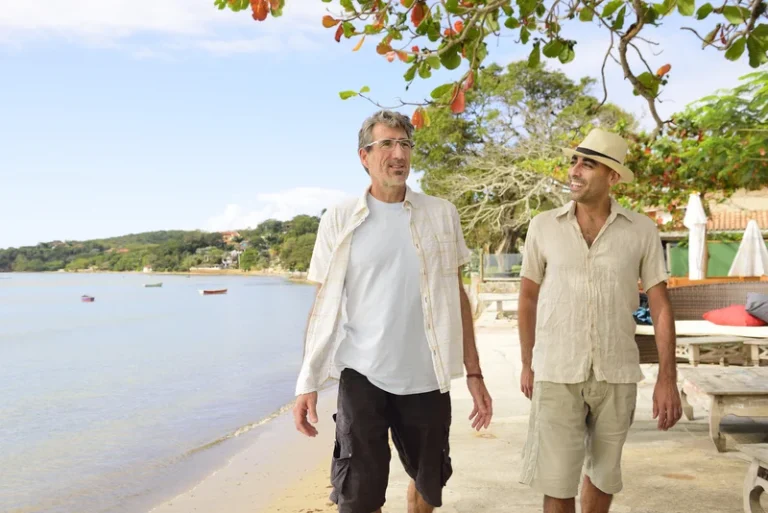
Further, those friends can serve as a cue that sets off drug craving and challenges the recovery process. Cravings are the intense desire for alcohol or drugs given formidable force by neural circuitry honed over time into single-minded pursuit of the outsize neurochemical reward such substances deliver. Cravings vary in duration and intensity, and they are typically triggered by people, places, paraphernalia, and passing thoughts in some way related to previous drug use.
- Identify other factors in your life—relationships, work—that can help take the focus off addictive behaviors.
- Low-cost or state-sponsored treatment facilities are effective, but they often include few amenities and have long waiting lists.
- Another vital element of care during recovery is relapse prevention—learning specific strategies for dealing with cravings, stress, setbacks, difficult situations, and other predictable challenges.
Stage 6: Termination
- Researchers have studied the experiences of many people who have recovered from substance use and identified key features of the recovery process.
- Others may need admission to a hospital or a residential treatment center.
- Outpatient counseling can help people understand addiction, their triggers, and their reasons for using drugs.
- Addiction is a chronic condition with a range of psychological and physical effects.
You may also find support groups in your community or on the internet. While naloxone has been on the market for years, a nasal spray (Narcan, Kloxxado) and an injectable form are now available, though they can be very expensive. Whatever the method of delivery, seek immediate medical care after using naloxone.

Program Certification
Understanding the deep connections between stress and drug addiction is essential to recovery. People who experienced stress and trauma, such as child abuse, early in life are more likely to become addicted to drugs. Stressful mental health conditions like depression and anxiety also increase the risk for opioid addiction.
Drugs, Brains, and Behavior: The Science of Addiction
- The facility and a sister location in Texas operated for decades, with the original Kentucky program becoming the subject of lore among music fans for housing numerous jazz luminaries seeking recovery from heroin addiction.
- Today, there are hundreds of such organizations throughout the United States.
- Stress is one of the most common risk factors for addiction and relapse.
- All addictions have the capacity to induce a sense of hopelessness and feelings of failure, as well as shame and guilt, but research documents that recovery is the rule rather than the exception.
It may help to get an independent perspective from someone you trust and who knows you well. You can start by discussing your substance use with your primary care provider. Or ask for a referral to a specialist in drug addiction, such as a licensed =https://ecosoberhouse.com/ alcohol and drug counselor, or a psychiatrist or psychologist.
Such triggers are especially potent in the first 90 days of recovery, when most relapse occurs, before the brain has had time to relearn to respond to other rewards and rewire itself to do so. Learning what one’s triggers are and acquiring an array of techniques for dealing with them should be essential components of any recovery program. Although addiction tends to cut people off from longtime friends, social support is a significant predictor of recovery.
Comprehensive Rehabilitative Services

American Addiction Centers (AAC) is committed to delivering original, truthful, accurate, unbiased, and medically current information. We strive to create content that is clear, concise, and easy to understand. Watch artist and advocate William Stoehr’s intimate testimony, as he shares his story of loss to an opioid overdose and… Overdose prevention is a CDC priority that impacts families and communities.

Like treatment for other chronic diseases such as heart disease or asthma, addiction treatment is not a cure, but a way of managing the condition. Treatment enables people to counteract addiction’s disruptive effects on their brain and behavior and regain control of their lives. This inclusion reflects a consensus of what is alcoholism experts from different disciplines and geographical regions around the world. They point out that only a tiny proportion of those who engage in digital or video gaming activities—notably those who have impaired control over the activity and spend excessive amounts of time at it—are at risk for the diagnosis. All addictions have the capacity to induce a sense of hopelessness and feelings of failure, as well as shame and guilt, but research documents that recovery is the rule rather than the exception. Individuals can achieve improved physical, psychological, and social functioning on their own—so-called natural recovery.
Reverse an Opioid Overdose
Education and awareness around the harm of using substances, along with the support of friends, parents, and caregivers, can help prevent SUDs. Individuals may not progress linearly through the stages of change; some take steps forward and then regress. For instance, someone aiming for alcohol abstinence may initially opt for moderation. The concept of recovery varies individually, with not everyone considering full abstinence as indicative of recovery.

Learn About Addiction
Each person’s journey is shaped by a myriad of factors, including physiological, psychological, and social elements. Therapeutic modalities such as cognitive-behavioral therapy (CBT), motivational interviewing, and mindfulness-based interventions offer diverse tools to address the multifaceted aspects of addiction. Adherence to an after-care plan is crucial in maintaining recovery progress. After completing a formal treatment program, individuals often receive an after-care plan tailored to their specific needs. This plan may include ongoing therapy, support group participation, and regular check-ins with healthcare professionals.
Non-Linear Progression: Navigating the Stages
The motivational force of new goals eventually drug addiction recovery helps rewire the brain so that it has alternatives to the drive for drugs. It’s hard to leave addiction behind without constructing a desirable future. Other research pinpoints the values of cognitive behavioral therapy for relapse prevention, as it helps people change negative thinking patterns and develop good coping skills. In addition, learning relaxation techniques can help those in recovery by reducing the tension that is often an immediate trigger of relapse, become comfortable with uncomfortable feelings, and release negative feelings that can trigger relapse. No matter which pathway of recovery a person chooses, a common process of change underlies them all.